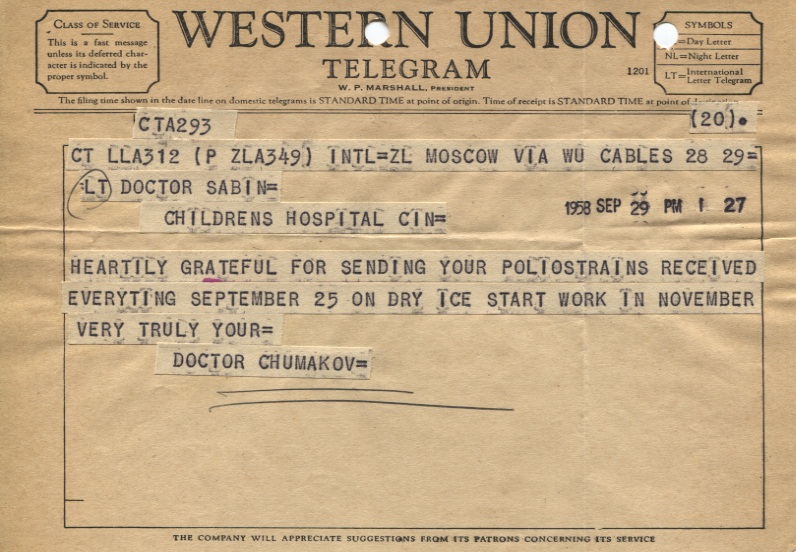The April 2012 issue of Scientific American Magazine features an article about Dr. Albert B. Sabin and Dr. Mikhail P. Chumakov called “Birth of a Cold War Vaccine” by William Swanson. Mr. Swanson conducted research in the Sabin Archives for the special report on polio. Regarding the “surprising” alliance of these scientists, Mr. Swanson wrote, “Their joint venture would have outraged fanatics on both sides of the iron curtain if those fanatics had been aware of it. Yet the collaboration—fleshed out in archival materials recently made available at the University of Cincinnati and by several contemporaneous sources—led to one of the greatest medical achievements of the 20th century and saved countless lives around the world” (p. 66).
When I wrote Mr. Swanson to ask him about his experience with the Sabin Archives, he replied, “I can tell you what a thrill it was to read Dr. Sabin’s notes in his own (very legible) hand and his often very personal exchanges with Dr. Chumakov and other Russian researchers, the Soviets’ replies often comprising the original Russian version and, attached to it, an English translation (Sabin spoke only limited Russian). Sabin’s correspondence with various U.S. government authorities, including State Department and public health officials, was also very interesting, providing information and insights that would be unavailable anywhere else.”
If you get a chance, be sure to pick up the latest issue of Scientific American to read the complete article written by Mr. Swanson. The full citation for the article is Swanson, William. “Birth of a Cold War Vaccine.” Scientific American, April 2012, 66-69.
In 2010, the University of Cincinnati Libraries received a $314,258 grant from the National Endowment for the Humanities (NEH) to digitize the correspondence and photographs of Dr. Albert B. Sabin. This digitization project has been designated a NEH “We the People” project, an initiative to encourage and strengthen the teaching, study, and understanding of American history and culture through the support of projects that explore significant events and themes in our nation’s history and culture and that advance knowledge of the principles that define America. Any views, findings, conclusions, or recommendations expressed in this blog do not necessarily reflect those of the National Endowment for the Humanities.

